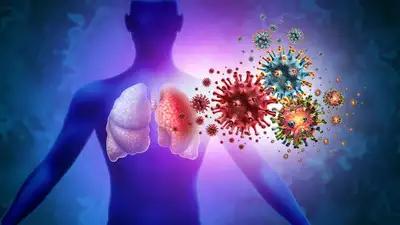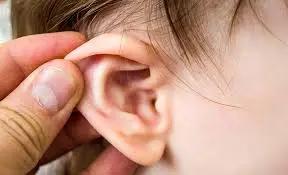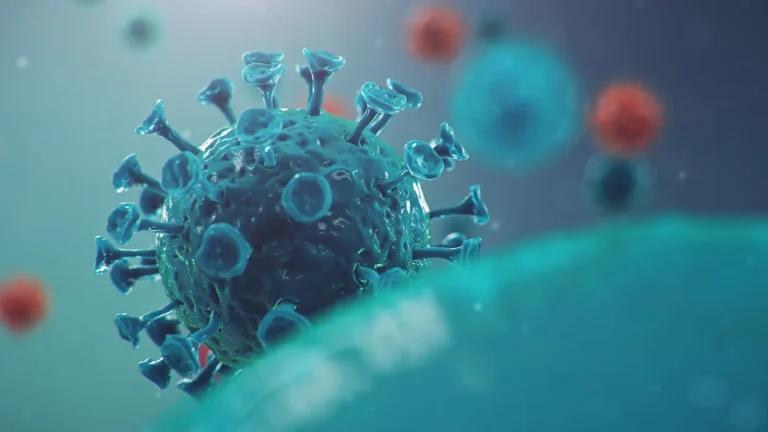
September 17, 2025 (Current Version)
March 28, 2025
Respiratory syncytial virus (RSV), also known as human respiratory syncytial virus was discovered in 1956 from a population of chimpanzees with respiratory illness. It is a single stranded RNA that belongs to the same family as the human parainfluenza viruses and mumps and measles viruses. Lets take a deeper look into the cause, symptoms and treatment of this viral infection.
📝 What is RSV?
Respiratory syncytial virus (RSV) belongs to the same family as the human parainfluenza viruses and mumps and measles viruses. It can cause a variety of respiratory tract infections and symptoms in adults, infants and young children. It most commonly causes cold-like symptoms, however some children and adults can get very sick, causing lower respiratory infections, like bronchiolitis and pneumonia.
📝 How is RSV transmitted between people?
This respiratory virus is very infectious spreading through close contact with a person who has the virus. When an infected person sneezes or coughs (secretions) the virus goes into the air around them and can land in someone else’s eyes, nose or mouth.
RSV can live on hard surfaces like counters or doorknobs. If you touch something that the virus lands on then you touch your face or face this is an way to pick up the virus.
📊 Symptoms of RSV
Most individuals will show upper respiratory infection symptoms 2-8 days after exposure, similar to the common cold:
- Runny nose
- Nasal congestion
- Mild headache
- Sore throat
- Cough
- Fatigue
- Fever
- Lack of appetite
Symptoms of RSV in babies
Some additional symptoms may be seen in babies:
- Wheezing
- Shortness of breath
- Irritability
- Poor feeding
In some individuals a severe respiratory syncytial virus infection may develop and spread to the lower respiratory tract, causing respiratory diseases requiring hospitalisation.
❗Can RSV infections be dangerous?
While most people only experience low grade mild cold symptoms with RSV, for others in high risk groups, RSV can cause more severe symptoms such as trouble breathing. Severe illnesses such as bronchiolitis or pneumonia may develop and may lead to hospital care.
Bronchiolitis
Bronchiolitis is when the smaller airways of the lungs (the bronchioles) become inflamed and swollen. The swelling can block airflow in the lungs, causing difficulty breathing.
Pneumonia
Pneumonia is a lung infection that affects the tiny air sacs (alveoli) in your lungs. When you have pneumonia, these air sacs get inflamed and fill with fluid, making it harder to breathe.
Worsening of existing conditions
Health conditions like asthma, congestive heart failure or chronic obstructive pulmonary disease (COPD) put people at higher risk of hospitalisation
Ear infection
Middle ear infection (otitis media) can develop if infections reach behind the ear drum. This happens most frequently in babies and young children rather than adults.
❗High risk groups
The virus can affect a person of any age, but largely affects the very young and very old.
Older adults
Adults at highest risk for severe RSV disease include:
- Adults 75 years of age and older
- Adults with heart disease
- Adults with chronic lung disease and other lung conditions
- Adults with weakened immune systems
- Adults with certain other underlying medical conditions
- Adults living in nursing homes
Young children and babies
Some age groups are at high risk of RSV complications:
- Babies 12 months old and under
- Children 2 years old and under with medical conditions or a weak immune system
- Children 2 years old and under born prematurely or have a low birth weight
🩺 How is RSV diagnosed?
To confirm diagnosis a healthcare professional will take a nose or throat swab along side signs and symptoms. If needed, a chest X-ray may be carried out.
🏥 Treatment
There are currently no specific treatments for RSV. Antibiotics are not helpful for viral infections. However doing some of the following will help relieve symptoms in adults and young children:
- Use saline drops or saline nose spray to help remove thick mucus from the nose
- Over the counter pain relief such as paracetamol or ibuprofen if suitable
- Stay hydrated with plenty of fluids
- Throat lozenges
- Decongestants if suitable
If your symptoms do not improve you may need to contact a healthcare provider to treat complications. In general, they may:
- Give you oxygen through a mask
- Remove mucus from airways
- Give you fluids through an IV (intravenous, through your vein) to treat or prevent dehydration
👍 Preventing RSV
There are things you can do to lower your risk of getting sick or developing complications even those catching RSV is not in your control:
- Take a RSV vaccine
The U.S. Food and Drug Administration (FDA) recently approved RSV vaccines for adults in the over 60 age group. Some babies may be suitable for monoclonal antibody immunisations such as nirsevimab and palivizumab.
- Regular hand washing with soap and water, particularly before preparing food and eating
- Cover your nose and mouth when sneezing or coughing
- Disinfect surfaces that have come into contact with people who have cold symptoms
- Discourage close contact with infected people
- Avoid kissing babies on the face and hands
- Avoid large indoor events during RSV season or avoid visiting family or friends when they’re sick
- Wear a mask in public spaces to limit exposure
💉 When to seek medical help
- Always trust your gut when it comes to your baby or young child and seek help
- Struggling to breathe while sitting still
- Blue lips
- New or worsening chest pain
- Confusion
📝 Conclusion
RSV can be scary, but it is usually not dangerous unless it turns into secondary pneumonia or bronchiolitis. RSV is a viral infection that can cause cold or flu like symptoms in children and adults. Symptoms typically resolve within 1 to 2 weeks, but some people may develop more severe symptoms, such as difficulty breathing, that require immediate medical attention.
Getting plenty of rest, staying hydrated, and taking OTC medications to relieve pain and fever can help people manage symptoms. Some high risk groups may be suitable for a RSV vaccine if recommended by your healthcare provider.
Sources
- Know the signs and symptoms of RSV – Doncaster and Bassetlaw Teaching Hospitals
- About RSV – RSV – CDC
- Respiratory syncytial virus (RSV): symptoms, transmission, prevention, treatment – GOV.UK
- Is There a Vaccine for RSV? Here’s Who Is Eligible
- Respiratory syncytial virus (RSV) – Symptoms & causes – Mayo Clinic
Medical Disclaimer
NowPatient has taken all reasonable steps to ensure that all material is factually accurate, complete, and current. However, the knowledge and experience of a qualified healthcare professional should always be sought after instead of using the information on this page. Before taking any drug, you should always speak to your doctor or another qualified healthcare provider.
The information provided here about medications is subject to change and is not meant to include all uses, precautions, warnings, directions, drug interactions, allergic reactions, or negative effects. The absence of warnings or other information for a particular medication does not imply that the medication or medication combination is appropriate for all patients or for all possible purposes.







